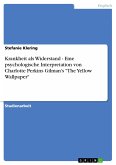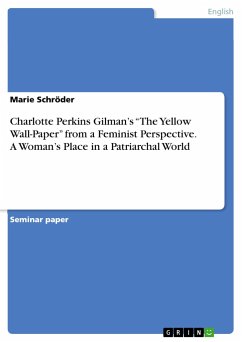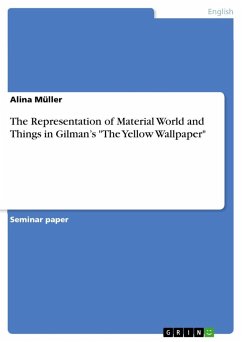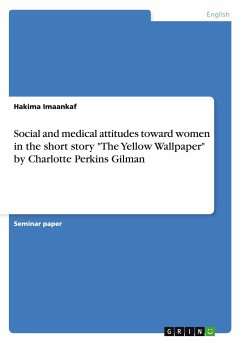Seminar paper from the year 2008 in the subject American Studies - Literature, grade: 1,0, University of Vienna (Institut für Anglistik und Amerikanistik), course: Seminar des 2. Studienabschnitts, language: English, abstract: This paper seeks to shed light upon Charlotte Perkins Gilman's short story "The Yellow Wallpaper" (1892) - a text that has become an American feminist classic and has been interpreted as a 'transformed autobiography' (Shulman, xix), as a 'journalistic/clinical account of a woman's gradual descent into madness' (Bak, 39), and in multiple ways as a 'critique of gender relations' (Shulman, xix). It is a 'bitter story', as Ann J. Lane describes it, 'of a young woman driven to insanity by a loving husband-doctor, who, with the purest motives, imposed Mitchell's "rest cure"' (Lane, vii). The narrator of the story is diagnosed as suffering from a 'temporary nervous depression' (W, 4), which is today known as 'postpartum depression', that is, a depression causedby profound hormonal changes after childbirth. Written some five years after the author herself, following the birth of her first child, became 'a mental wreck' in need of a 'rest cure', "The Yellow Wallpaper" is a fictionalized account of Gilman's own subjection to the rest cure of Silas Weir Mitchell, whose mode of treatment so notoriously typified conventional late Victorian doctoring of women .








